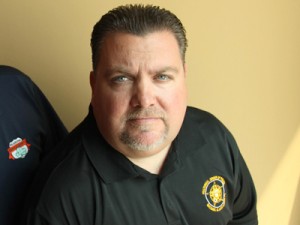HARRISBURG – Gov. Wolf on Monday vetoed a controversial bill that would have strictly limited public officials’ right to release immediately the names of police officers involved in shootings.
The bill was sponsored by Republican State Rep. Martina White of Philadelphia and approved by the GOP-controlled legislature with bipartisan support.
In a statement, White said she planned to reintroduce the measure in the new session.
“Shootings are increasingly political,” she said. “That places the lives of our officers and the lives of their family members in danger. While we need transparency whenever police are involved in a shooting, we owe our officers basic protection from threats.”
John J. McNesby, president of Fraternal Order of Police Lodge 5 in Philadelphia, called Wolf’s veto “abject political cowardice” and said he “spinelessly caved to the howling mob of antipolice hate groups.”
Current law allows local officials to determine when to identify an officer who has used force.
Under the bill, public officials would have been barred from releasing the name of an officer involved in a shooting until 30 days after the incident, or after an official investigation ended.
Anyone who violated the law could have been charged with a second-degree misdemeanor. The state Attorney General’s Office and district attorney’s offices would have been exempt.
The law would have superseded local policies. In Philadelphia, for instance, the Police Department typically discloses names of officers involved in shootings within 72 hours of the incident if there are no credible threats to those officers.
Supporters said the bill, supported by several local police unions, was necessary to protect police officers and their families after shootings, which often draw intense public scrutiny.
Opponents criticized the bill sharply, saying it went against the long-held idea of government transparency, which they believe is particularly critical when a police shooting occurs.
717-787-5934
@AngelasInk


